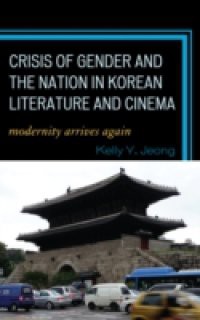Crisis of Gender and the Nation in Korean Literature and Cinema is about the changing constructs of modernity, masculinity, and gender relations and discourses in Korean literature and cinema during the crucial decades of the colonial and postcolonial era, based on close historical examination and a wide-ranging theoretical foundation that look at both western and Korean language sources. It examines Korean literary and cinematic texts from the period that spans from the1920s to the 1960s to reveal the ways in which many arrivals of modernity in Korea_through the traumatic pathways and contexts of colonialism, nation building, war, and industrialization_destabilize and set in flux the notions of gender, class, and nationhood. It probes into some of the most significant aspects of Korean culture in the earlier part of the twentieth century through an interdisciplinary inquiry that deploys methods and seminal texts from the fields of Korean Studies, Comparative Literature, Postcolonial Studies, and Film Studies. Each chapter is an exploration of a decade, organized around questions about modernity, gender, class, and the nation that are central to understanding the selected texts and their contexts. The nation of Korea has been under threat since the Japanese colonial period (1910-1945). Crisis of Gender and the Nation critically analyzes the cultural responses of the nation and its gendered subjects in crisis, represented in a selection of Korean literary and cinematic texts from the colonial period, beginning in the 1920s, to the postcolonial period, up to the 1960s, through the lens of both Western and Korean discourses of gender and postcolonial inquiries of literature and film. It delineate the connection between the construction of the nation as a unified, sovereign entity and the ideal of the new Korean masculinity, to show how Korea's Confucian patriarchal tradition and its hold on the national imagination endures over the turbulent decades under examination, by adapting to the new surroundings and social mores, even while its core assumptions and values remain unchanged in significant ways.

